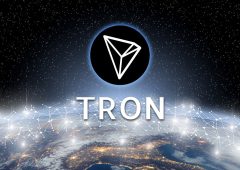DePINs Revolutionize Infrastructure with Major Corporate Adoption
11.09.2024 19:00 1 min. read Alexander Stefanov
In the evergrowing crypto and blockchain space, Decentralized Physical Infrastructure Networks (DePINs) are rapidly reshaping how physical and digital infrastructure interact through Web3 technologies.
Over the past year, top-tier global firms have started using DePINs to improve service access, ownership models, and network security.
These networks employ proprietary tokens or cryptocurrencies to encourage participation and support various infrastructure systems, including telecommunications.
Analysts are now predicting that a leading DePIN company could become as significant as Amazon Web Services in the next trillion-dollar market.
On September 9, Lufthansa and Deutsche Telekom announced their involvement with the Peaq network by launching blockchain nodes. These nodes, collectively valued at more than $170 billion, will play a key role in the upcoming Peaq network launch set for late September.
The involvement of large corporations in running these nodes is crucial for maintaining the decentralized nature of the blockchain and supporting its growth. This engagement is seen as a major step towards integrating DePINs into mainstream enterprise applications.
-
1
JPMorgan Lays Groundwork for Tokenized Finance with New Blockchain Trademark
17.06.2025 12:00 1 min. read -
2
Malaysia Opens the Door to Blockchain Experimentation With Launch of Innovation Hub
18.06.2025 22:00 2 min. read -
3
The Bitcoin-Cardano Bridge is Here: What it Means for DeFi
10.06.2025 21:00 1 min. read -
4
Chainlink Edges Closer to Wall Street Integration, Says Co-Founder
12.06.2025 9:00 1 min. read -
5
Polygon Breaks from Decentralization as Sandeep Nailwal Assumes Full Control
11.06.2025 20:00 2 min. read
Solana Partners with Kazakhstan to Launch Digital Economy Zone
Solana is making its next major move—this time, not through memecoins, but national partnerships.
Hyperliquid Chosen as Core Reserve in Lion Group’s Blockchain Expansion
Lion Group Holding Ltd. has raised $600 million from investment firm ATW Partners to fuel a major shift into decentralized finance.
Ford Tests Cardano-Powered Data Solution for Its Legal Archives
Cardano startup Iagon has recruited Ford Motor Company to help shape a decentralized cloud prototype aimed at corporate document management.
Malaysia Opens the Door to Blockchain Experimentation With Launch of Innovation Hub
In a move to strengthen its position in the regional fintech race, Malaysia has unveiled a new digital sandbox aimed at nurturing innovation in blockchain and digital finance.
-
1
JPMorgan Lays Groundwork for Tokenized Finance with New Blockchain Trademark
17.06.2025 12:00 1 min. read -
2
Malaysia Opens the Door to Blockchain Experimentation With Launch of Innovation Hub
18.06.2025 22:00 2 min. read -
3
The Bitcoin-Cardano Bridge is Here: What it Means for DeFi
10.06.2025 21:00 1 min. read -
4
Chainlink Edges Closer to Wall Street Integration, Says Co-Founder
12.06.2025 9:00 1 min. read -
5
Polygon Breaks from Decentralization as Sandeep Nailwal Assumes Full Control
11.06.2025 20:00 2 min. read


